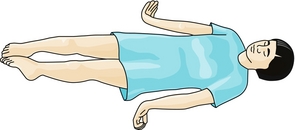Chapter 14
Adult Health Questions
References
deWit, Kumagai (2013), p. 1040; Ignatavicius, Workman (2013), p. 818.

(Figure from Ignatavicius D, Workman ML: Medical surgical nursing: Patient-centered collaborative care, ed 7, Philadelphia, 2013, Saunders.)
References
Christensen, Kockrow: Adult Health (2011), pp. 460-461; Lewis et al (2011), pp. 1142-1143.
ANSWER: 3
< div class='tao-gold-member'>
Only gold members can continue reading. Log In or Register to continue
Stay updated, free articles. Join our Telegram channel

Full access? Get Clinical Tree


 27 mEq/L. The nurse interprets that the client has which acid-base disturbance?
27 mEq/L. The nurse interprets that the client has which acid-base disturbance? is 22 to 27 mm Hg. Metabolic acidosis is present when the
is 22 to 27 mm Hg. Metabolic acidosis is present when the  is less than 22 mEq/L and the pH is less than 7.35, whereas metabolic alkalosis is present when the
is less than 22 mEq/L and the pH is less than 7.35, whereas metabolic alkalosis is present when the  is greater than 27 mEq/L and the pH is greater than 7.45. This client’s ABG results are consistent with respiratory acidosis.
is greater than 27 mEq/L and the pH is greater than 7.45. This client’s ABG results are consistent with respiratory acidosis.